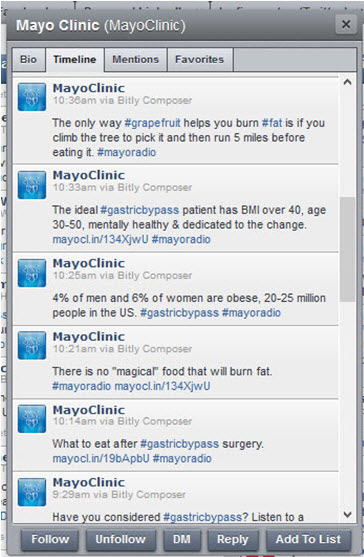Two Social Media Outcomes Practice Managers Are Excited About
marydrozario
 Practice managers usually aren’t too excited to see me coming. Social media is one more task and one more risk on an overflowing plate. So I was thrilled to sit down with some practice managers and hear about the social media outcomes they were excited about: collecting actionable information about patient dissatisfaction and collecting positive patient stories that improve employee engagement.
The setting was the Tri-State Healthcare Management Conference in Savannah, GA last week. Medical managers from North Carolina, South Carolina and Georgia gathered together to share best practices in coping with the drastic changes affecting practice management. For three days we learned together, ate together, and partied together. This is what I heard from these leaders in the practice management profession:
Practice managers usually aren’t too excited to see me coming. Social media is one more task and one more risk on an overflowing plate. So I was thrilled to sit down with some practice managers and hear about the social media outcomes they were excited about: collecting actionable information about patient dissatisfaction and collecting positive patient stories that improve employee engagement.
The setting was the Tri-State Healthcare Management Conference in Savannah, GA last week. Medical managers from North Carolina, South Carolina and Georgia gathered together to share best practices in coping with the drastic changes affecting practice management. For three days we learned together, ate together, and partied together. This is what I heard from these leaders in the practice management profession:
Being able to get actionable information from dissatisfied patients was a key value they got from social media. Aside from patient satisfaction scores and liability risks of unsatisfied patients, customer satisfaction is an outcome dear to most practice managers' hearts. Managers who reported getting information they could use to solve a patient satisfaction issue reported having two things on their side: 1) The practice had a monitored social media presence where patients could freely express themselves directly to the practice. The social media manager escalated satisfaction issues for resolution. 2) The practice had staff on social media who trusted them enough to resolve issues that they would report dissatisfaction complaints they saw in their own social media networks.
Practice managers were also excited that social media could elevate employee engagement. Healthcare employee dissatisfaction is high in the current environment. This dissatisfaction creates a stressful office environment that patients can feel- lower employee engagement directly relates to lower patient satisfaction and worse patient outcomes. Providing a portal for patients to waive their HIPAA privacy protections and tell their own stories increases employee engagement. It brings those positive experiences back to the office, including back office staff who may be particularly disconnected from the positive outcomes generated by the practice.
Obtaining these social media benefits requires investing in monitored social media and content management and in employee training that turns every employee into a social media asset for the practice.


 Recently a practice manager expressed a frustration about her staff. They were using their personal phones to text message with patients about appointment scheduling. No matter how many times she told them to stop, they wouldn't listen. Meanwhile, she wasn't listening to the message her patients were giving: they wanted to be able to schedule their appointments via text messaging.
The practice had not provided any way to do this, so the staff were going behind her back to make the patients happy. The good news is that this is solvable. The bad news is that it needs to be solved quickly for all of the obvious HIPAA and legal protection reasons, as well as the simple factor of providing one clear professional voice from the practice to the public.
Recently a practice manager expressed a frustration about her staff. They were using their personal phones to text message with patients about appointment scheduling. No matter how many times she told them to stop, they wouldn't listen. Meanwhile, she wasn't listening to the message her patients were giving: they wanted to be able to schedule their appointments via text messaging.
The practice had not provided any way to do this, so the staff were going behind her back to make the patients happy. The good news is that this is solvable. The bad news is that it needs to be solved quickly for all of the obvious HIPAA and legal protection reasons, as well as the simple factor of providing one clear professional voice from the practice to the public.